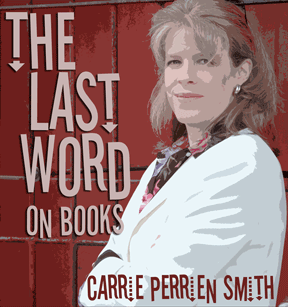|
Stop Talking and Start WritingNothing is more frustrating than listening to an aspiring author who is debating the answers to 100 questions about the book publishing process when they don’t even have 100 words written down on paper.
“Should I self-publish or publish through a major publisher?” Arrgg! It's not that these aren't good questions — it's just that they are questions for people who are nearly finished with their manuscript. A book in your head has no marketable value unless you are a pop-culture icon like Dr. Phil or a well-known expert in your field. When you are an unknown, your only hope is to stop talking about it and start writing.
Such questions build a smoke screen meant to hide the fact that some people can’t nail their tails to a seat long enough to put their thoughts on paper. My advice to those individuals: quit questioning the publishing process and spend that energy building your expertise and putting words down on paper. At the very least, start asking more meaningful questions about the content — specifically about your target market.
You can over-think this process to death and never finish a manuscript. You have to start by defining why you should write the book and who will buy it. Answer these three questions:
Who Would Most Likely Pay Money for the Knowledge I Have (Target Market)?There is no crime in writing your book for yourself. However, if you want to make money, you need to write it for your prospective reader. Who would be most interested in what you have to share? You need to know who is willing to pay money for your information. This means that your target audience may not only be the individuals who are reading your book. It could also include the ones who are buying your book. For example, you may have written a book for car racing fans but the target buyer is the wife, sister, or daughter of the prospective reader (80 percent of book buyers are women). While the buyer may never read the book, it should attract her so she will buy it for the car-racing fan in her life as a gift. What Knowledge, Experience, or Expertise Do I Have (or Need to Develop)?One of the great mistakes that aspiring authors make is not writing about what they’ve spent their life learning. They write about some other topic that interests them or what they think the hot topic in the market is. Almost all of them eventually go back around to the topic that they earned the right to write about. The decision to write a book often comes at a turning point in someone’s life — like when they are ready to run screaming for a career change. Because the aspiring author is ready for a change, he thinks no one else is interested in what he knows. At some point, most aspiring authors wake up and realize that their lifetime of experience is valuable to the right target audience. Once they realize it positions them as an expert in their field and begin writing about the topic they know the best, the book-writing process comes more easily. What if you are fascinated by a topic but have no expertise in it? That’s no reason not to write the book. Just start investing 30 minutes each day learning about your topic — in fact, you should be doing this even if you think you know it all just to stay current. Read trade journals, books, magazines, newspapers, and internet articles. In as little as a year, you could know more about that topic than 90 percent of your target audience. If you need credentials, get the additional education that you need. Just be cautious that you don’t use the “need for more education” as an excuse for not getting started. That is another popular smokescreen to hide the fact someone can’t nail her tail to a seat long enough to put her thoughts on paper! Before you start to talk yourself out of writing a book because “there are other books on that topic,” STOP! There are tons of reasons to write on the same topic that other authors have written on. Perhaps it’s a hot trend, and you can ride the wave. Maybe you can approach it from a contrarian view that takes a totally different slant on the conventional wisdom. Maybe you’re a speaker who speaks to hundreds or thousands of people a year. If your audience loves you on stage, they will want to learn more about what you know. There is no competition on your back-of-the-room book table like there is in a bookstore. You can look like the only game in town if you position yourself correctly. Why Would People Want To Know What I Know?This translates to “What pain are you solving?” If you are in real pain, you want an expert who is experienced in solving that pain, don’t you? Everyone does unless they are too cheap to pay for it — of course, we all eventually learn that if we don’t seek the right expert to relieve our pain, it will only get worse. People value expertise. Once you know who your target audience is, you can start researching to find out what their pain is. One of the biggest misconceptions in creating a vision for a book is that “so many people NEED what I have offer!” Just because someone needs something doesn’t mean that they are willing to plunk down their cold hard cash for it. Unless their need is causing them pain, you are more likely to have better success in learning more about what they WANT. No one wants to be in pain; they want to have their pain relieved.
Spending time up front evaluating these three questions about your target market will guide you as you write the book. It will make your job marketing the book after it is printed much easier too. A special note to speakers: make sure that your book topic is the same as your main speech topic. People who love you on stage will want to take more of your home with them. You will always sell more books when your speech and your book are on the same topic. It's time to stop talking and start writing. You deserve to be a published author. I’m Carrie Perrien Smith and that’s the last word on getting your book written.
|
||||
Carrie Perrien Smith is a publishing, communication, and training industry veteran. Her company, Soar with Eagles (www.soarhigher.com), offers training, book publishing, event production, and consulting services as well as a professional speaker bureau. Her book publishing division primarily serves the needs of professional speakers. She is an expert on building lifelong business relationships and is the author of Networking Zone: The Business Referral Construction Guide and Currency: Striking Networking Gold in a Relationship Economy. Her corporate career spans 15 years, split between Texas Instruments and Wal-Mart Stores, Inc. She is also the faculty expert on book publishing and working with speaker bureaus for World Champion Speakers (www.worldchampionresources.com). |
|||||
 Volume 1, Issue 2
Volume 1, Issue 2